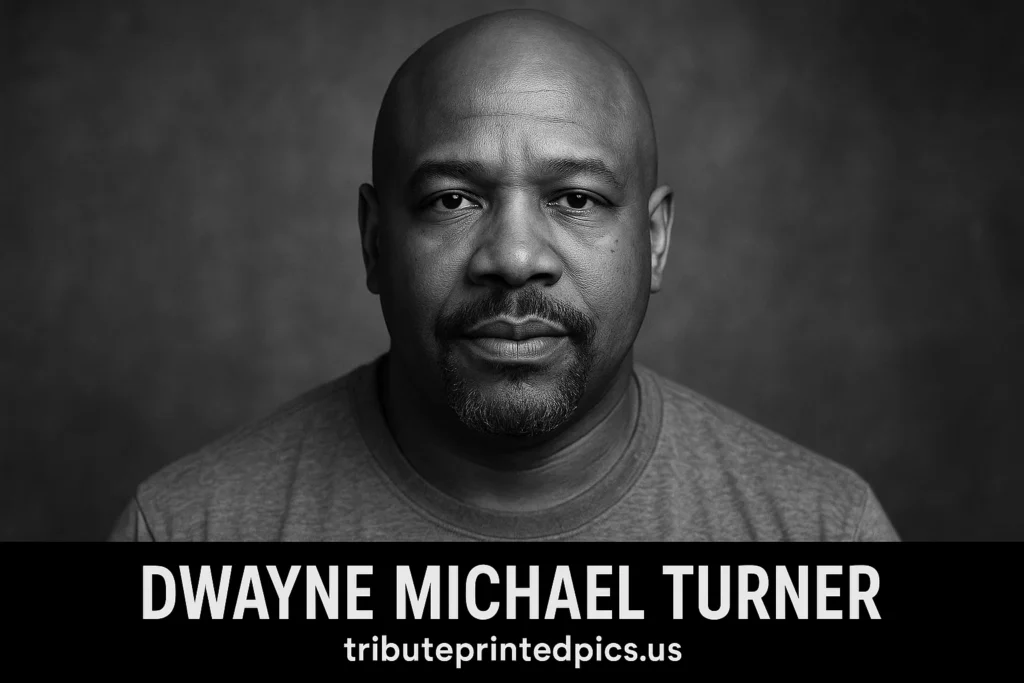The Untold Story of Dwayne Michael Turner
Dwayne Michael Turner is a name tied to hip-hop history and one of rap’s most famous figures — Lil Wayne. His story is not just about absence but also about the legacy of mentorship and influence. This is more than a tale of a father; it is a narrative about abandonment, identity, and resilience.
Lil Wayne’s rise in the rap music industry came despite complex family dynamics. Turner’s absence shaped Lil Wayne’s upbringing, while figures like Reginald “Rabbit” McDonald and Birdman (Bryan Williams) played critical roles in his life. This article dives deep into Turner’s life and his subtle yet lasting impact on rap culture.
Who Is Dwayne Michael Turner?
Dwayne Michael Turner is best known as Lil Wayne’s biological father. While his name is often linked to controversy and absence, his personal history reflects broader themes in hip-hop. Turner’s early life remains mostly private, but his story is tied to fatherhood in music and the emotional impact of abandonment.
He is part of a larger narrative about the rap music industry, where father figures and mentorship often define artist identity. Turner’s story intertwines with Lil Wayne’s own journey from a child in New Orleans to a global hip-hop icon.
Lil Wayne’s Upbringing and Father Figures
Lil Wayne grew up in a challenging environment, marked by absent fathers and influential stepdads. Dwayne Michael Turner left early in Lil Wayne’s life, leaving a gap that others filled. Reginald “Rabbit” McDonald and Birdman became father figures, shaping his career and life.
Birdman, co-founder of Cash Money Records, played a significant mentorship role. This relationship helped Lil Wayne build his reputation in the rap industry and shape his rapper identity. The presence of stepdads had lasting emotional and musical influence on Wayne’s work.
Reginald ‘Rabbit’ McDonald’s Influence
Reginald “Rabbit” McDonald was more than a stepdad; he was a father figure who shaped Lil Wayne’s early life. His guidance left emotional impact, affecting Wayne’s personal history and rap career. Lil Wayne often credits Rabbit for instilling discipline and passion for music.
This mentorship influenced Wayne’s early rap albums and inspired themes later seen in his works, including Tha Carter II. The presence of strong father figures, even in absence, is a theme Wayne explores in his music, including in “Like Father, Like Son” collaborations.
The Abandonment and Its Impact
Dwayne Michael Turner’s absence left a lasting mark on Lil Wayne. Abandonment shaped both Wayne’s personal life and his musical identity. The rapper’s upbringing became a story of resilience and self-discovery.
This theme runs deep in Wayne’s albums. Tha Carter II, for example, reflects struggles with fatherhood in music and personal hardship. Turner’s absence indirectly became part of Wayne’s legacy in rap, influencing his emotional depth and lyrical style.
Why Lil Wayne Dropped “Dwayne” from His Name
Lil Wayne’s birth name is Dwayne Michael Carter Jr. Dropping “Dwayne” was a personal choice tied to family history. It symbolized moving past abandonment and creating a distinct rapper identity.
This change also reflected Wayne’s desire to define his own path in the hip-hop world. By stepping away from his biological father’s name, he embraced his artistic identity, shaped by mentors and life experiences.
Career Milestones and Mentorship
Lil Wayne’s career milestones owe much to mentorship. Birdman’s guidance at Cash Money Records was instrumental in Wayne’s rise. Mentorship in rap music is crucial, and Birdman’s role mirrored a father figure dynamic.
Wayne’s albums, including Tha Carter II, stand as proof of this mentorship. They represent both personal growth and musical collaboration that shaped hip-hop influence. This dynamic also shows how mentorship in rap can substitute for traditional fatherhood.
The Role of Cash Money Records
Cash Money Records provided the platform for Lil Wayne’s breakthrough. Under Birdman’s mentorship, Wayne found his voice in the rap music industry. This collaboration influenced Wayne’s style, trap music influence, and album releases.
The label became a family-like environment. This highlights how, in hip-hop culture, mentorship and father figures are intertwined with musical success.
Influence on Lil Wayne’s Rap Music Career
The influence of father figures and mentors shaped Wayne’s artistic vision. From early collaborations to later solo work, Turner’s absence and Birdman’s guidance informed Wayne’s creative choices. His rapper biography reflects themes of identity and perseverance.
Wayne’s rap albums reveal a journey through personal history and the emotional impact of fatherhood in music. This influence is especially evident in tracks that explore abandonment and legacy in rap.
Lil Wayne’s Fatherhood Today
Lil Wayne’s approach to fatherhood reflects lessons from his upbringing. He values mentorship and presence, providing his children what he missed. His experience of abandonment shapes his personal history as a father figure.
This theme appears in his music, where Wayne blends personal stories with his rapper identity. His fatherhood journey is intertwined with his legacy in rap and his own emotional impact as a parent.
Public Perception and Legacy
Public perception of Dwayne Michael Turner is mixed. Some view him through the lens of absence, while others see him as part of Lil Wayne’s complex biography. The legacy in rap includes both Turner’s absence and the mentorship Wayne received.
Wayne’s narrative shows that influence on a rapper’s identity can come from both presence and absence. This adds depth to understanding how personal history shapes a hip-hop career.
The Emotional Impact of Father Figures
Father figures like Birdman and Reginald “Rabbit” McDonald shaped Wayne’s rapper identity. Their mentorship is evident in his lyrical themes and career milestones. This influence demonstrates the emotional depth behind hip-hop influence and musical collaboration.
Wayne’s music reflects both gratitude and struggle. His work captures the emotional complexity of abandonment and mentorship in the rap music industry.
Table — Key Figures in Lil Wayne’s Life
| Figure | Role in Lil Wayne’s Life | Influence on Career |
|---|---|---|
| Dwayne Michael Turner | Biological father | Absence, emotional impact |
| Reginald “Rabbit” McDonald | Stepdad | Discipline, guidance, father figure |
| Birdman (Bryan Williams) | Mentor, stepfather figure | Musical mentorship, career breakthrough |
Lil Wayne’s Career Milestones and Mentorship Timeline
| Year | Milestone / Album Release | Mentor / Influence | Impact on Rap Career & Identity |
|---|---|---|---|
| 1987 | Birth of Dwayne Michael Carter Jr. | Dwayne Michael Turner (absent) | Early life marked by abandonment, shaping resilience |
| 1991 | First exposure to rap music | Reginald “Rabbit” McDonald | Stepped in as father figure, nurturing talent |
| 1995 | Joins Cash Money Records | Birdman (Bryan Williams) | Mentorship begins, introduction to hip-hop industry |
| 1999 | Tha Block Is Hot Album Release | Birdman | Early rap album success, recognition in rap music industry |
| 2005 | Tha Carter II Album Release | Mentorship and artistic guidance | Career-defining album; personal history reflected in lyrics |
| 2006 | Like Father, Like Son Collaboration | Mentorship and collaboration | Highlights fatherhood themes and mentorship in rap |
| 2010 | Consolidation of Hip-Hop Influence | Personal history & music career mentors | Established as a major figure in rap music industry |
| 2020s | Legacy and mentorship to younger artists | Lil Wayne himself as father figure | Influence on next generation of hip-hop talent |
The Legacy of “Like Father, Like Son”
Lil Wayne’s “Like Father, Like Son” album embodies themes of mentorship and fatherhood. The collaboration reflects the complexities of family ties in music and the rap music industry’s unique storytelling.
This album is a symbolic statement of Wayne’s growth. It captures the essence of influence, abandonment, and the lasting role of father figures in shaping rapper identity.
Conclusion
Dwayne Michael Turner’s story is part of a larger narrative about fatherhood, mentorship, and resilience. His absence shaped Lil Wayne’s life, while figures like Reginald “Rabbit” McDonald and Birdman filled roles that defined Wayne’s artistic identity.
Lil Wayne transformed personal hardship into artistic brilliance. His rapper biography shows how abandonment can become a powerful force in creative expression. Turner’s legacy — though absent in presence — continues through Wayne’s music, mentorship, and lasting influence on hip-hop culture.
FAQs
1. Who is Dwayne Michael Turner?
Dwayne Michael Turner is Lil Wayne’s biological father, known for his absence during Wayne’s upbringing.
2. Why did Lil Wayne drop “Dwayne” from his name?
Wayne dropped “Dwayne” to distance himself from his father’s absence and create his own identity in music.
3. Did Lil Wayne reconnect with Dwayne Michael Turner?
There is no confirmed public reconciliation between Lil Wayne and Turner.
4. What is the role of Birdman in Lil Wayne’s career?
Birdman was a mentor and father figure who helped shape Wayne’s career under Cash Money Records.
5. How did abandonment affect Lil Wayne’s music?
Abandonment deeply influenced Wayne’s lyrical themes, giving emotional depth and authenticity to his rap albums.


